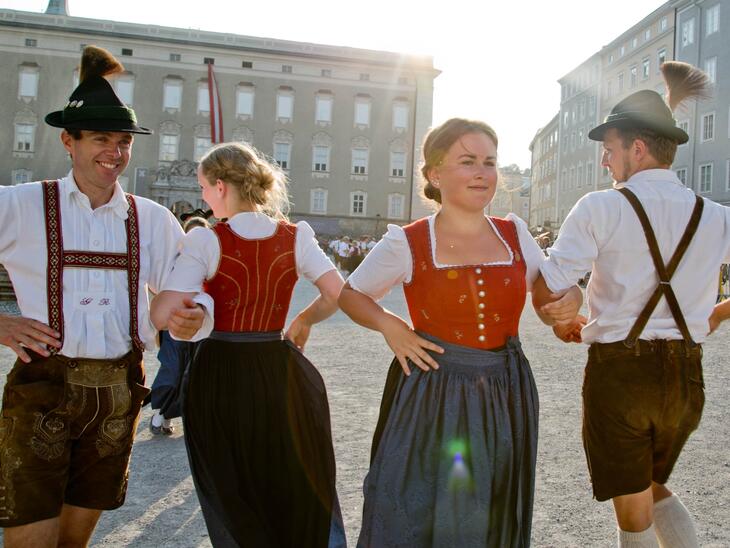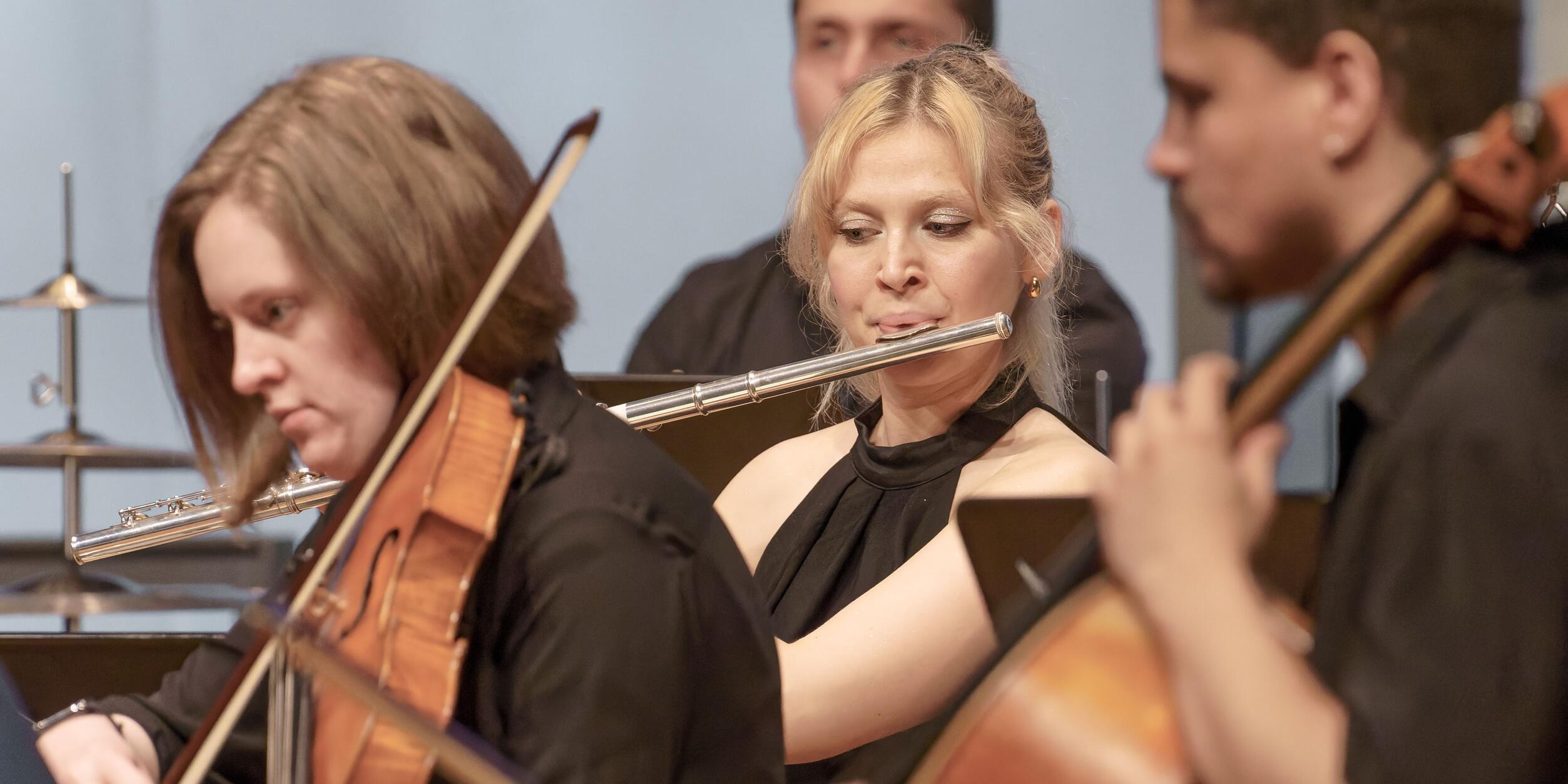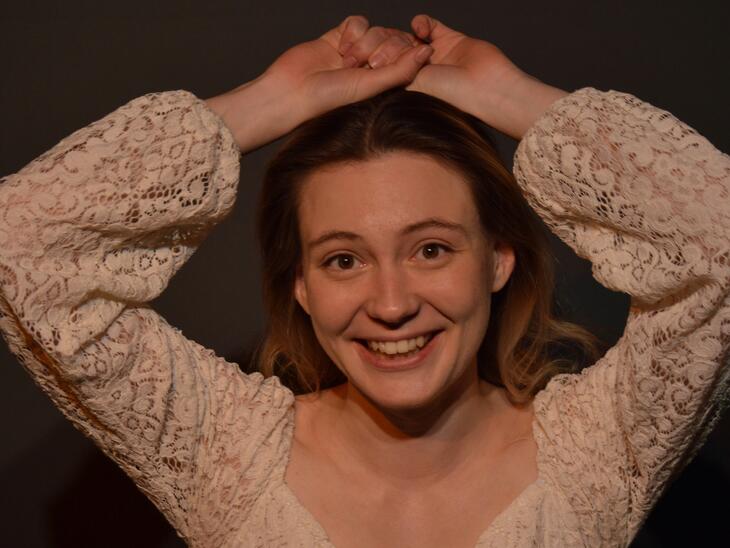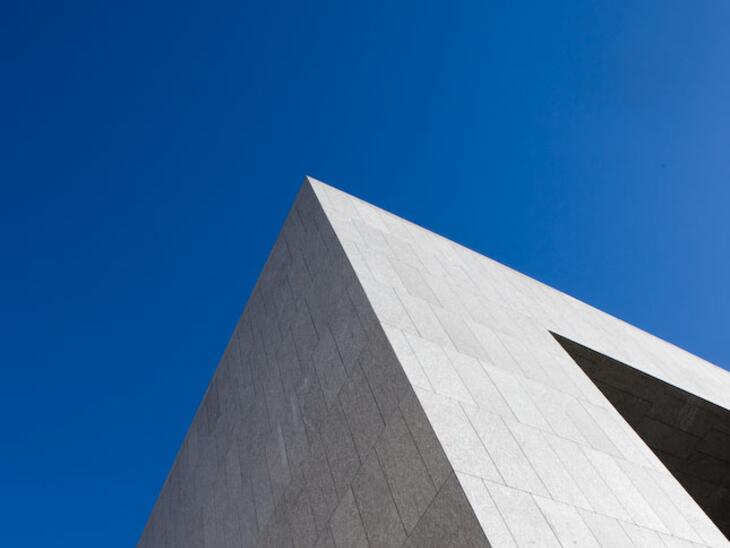Developing your own work together with musicians, watching it grow in rehearsals and finally performing it "live" for the first time is one of the highlights of a university education, and not just for composition students. For all participants, the creative process of bringing a new work or completely new music to life is a special one; it represents an intensive dialogue on all levels and requires a fundamental common understanding. Contemporary or new music therefore thrives on its communication and the ensembles that dedicate themselves to it. In Salzburg, there are a pleasing number of examples of ensembles that come from Mozarteum University environment: the œnm . œsterreichisches ensemble für neue musik, Ensemble acrobat and the NAMES ensemble prove that there have always been sustainable and successful initiatives in the university context and that this tradition continues with the recently formed Ensemble für zeitgenössische Musik.
The latter sees itself as a long-term platform for trialling new ideas and at the same time aims to promote the public's understanding and appreciation of contemporary music. For good reason, as the musical director, Kai Röhrig, states: "The status of contemporary music within the so-called 'classical music industry' and within education is a very complex issue. I have been at Mozarteum University for thirty years now and in all that time I have always experienced a very serious and intensive approach to new music. Our renowned composition teachers (past and present) and the many successful graduates are emphatic proof of this. Nevertheless, New Music must constantly fight for visibility and perception. Major competitions are won with standard repertoire and organisers primarily want works from the classical canon."
However, Röhrig, who is based in the Department of Opera & Music Theatre, also perceives a spirit of optimism in many areas: the Institute for New Music is firmly anchored at Mozarteum with its Studio for Electronic Music, the International Master's Programme in New Music (Bern - Dresden - Salzburg) continues to develop and festivals and collaborations also promote networking within the music scene. Many of the new teachers are also focussing on contemporary repertoire, including Röhrig himself in the Opera Department: "Nowadays, my Master's students in the opera class can't avoid contemporary music during their time with us. Together with my colleague, director Florentine Klepper, we are keen to look ahead in the field of music theatre and also encourage our students to think outside the box." This spirit of optimism can also be clearly felt among the new ensemble members, the founding phase is characterised by verve and enthusiasm: "It would be great if we could maintain this commitment and intensify our musical cooperation even more through regular collaboration. A strong ensemble is characterised not least by years of 'growing together'. I hope that our ensemble will continue to exist for a long time and that we will be able to realise many innovative projects! What I have experienced so far has been very promising," says flautist Leona Rajakowitsch. Choosing the founding members of the ensemble was "very easy", laughs Kai Röhrig. Eight students were asked, all of whom accepted immediately, and there is definitely a great deal of curiosity among everyone involved. The focus is on networking within the theatre, promoting collaboration and exchange between composing and performing students. Röhrig comments: "As a teacher, I see this as part of my role. In addition to performing the new works, we try to convey an important experience: Get involved with each other and learn from each other!"
According to Anna Skladannaya, the young musicians and composers of the Ensemble for Contemporary Music focus on enriching their own artistic work, sharpening their view of classical scores and the joy of discovery, the search for talent and the hunt for new, unheard-of soundscapes and exciting compositional ideas: "For us composers who are at the beginning of our careers, the university offers an opportunity to experience our works live right from the start by founding this ensemble. I like to compare the composition process to painting blindfolded: you know exactly which colours you have available on the palette and have a clear idea of the result. But the way in which the work is created in the hands of the musicians, how it communicates with the room acoustics and what after-effects it leaves with the audience can only be experienced in this collaboration." Leona Rajakowitsch adds: "As a founding member, it's wonderful for me to be able to rely on a nucleus of familiar sounds around me. I get to shape an ideal sound together with my colleagues over a long period of time and have the opportunity to get to know the musical personality of everyone involved even better. For me, the process is similar to the creation of a dish, from the conception to the final presentation. We are many chefs, all of whom are masters in their field, who have a perfect command of their instrument and are curious about new challenges. And Kai is our head chef. The best thing about it: we're all in the kitchen together! Ultimately, we present a complex dish of inspiration, artistic skill and fruitful collaboration of the highest quality under the serving bonnet. So what am I looking forward to the most? To 'cooking' together!"
Following the inaugural concert, further dates have already been set: the ensemble for contemporary music will perform two graduation concerts on 22 and 25 June, with world premieres by Seungju Noh, Mikyoung Lee and Veit Vergara, who will complete their master's degree in composition during these concerts. Such concerts will continue to be fixed points in the ensemble's concert programme in the future, and regular ensemble concerts and requests for collaborations are already in the pipeline. Anna Skladannaya is already looking forward to the next projects: "I'm particularly looking forward to watching my work 'Lucid Dream' come to life, to rehearsing with great musicians and to the opportunity to attend the world premiere. I want to inspire as many people as possible for music and especially for composing! There are so many conflicts in the world - in my opinion, not least because many people no longer listen to each other instead of transforming their inner energy into art and love."
The ensemble's own aspirations and the music it wants to give life to are "new" in the truest sense of the word, which is the great attraction for those involved: every premiere is a challenge and the learning effect lies in mastering it. "For singers and artists, such world premières are particularly formative experiences. There are no role models here, you create something completely new, you make it your own, so to speak," concludes Kai Röhrig - we hope you enjoy discovering it!
(First published in the Uni-Nachrichten / Salzburger Nachrichten on 8 June 2024)




